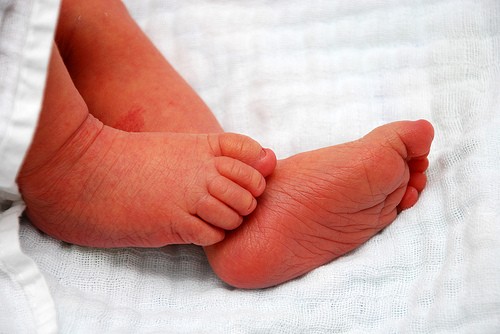
Being born via caesarean section can increase the risk of autism, a new study from Ireland shows.
Autism Spectrum Disorder (ASD) is a term used to describe a group of disorders that affects the normal development of the brain.
A World Health Organization (WHO) report released last year estimated that one in every 160 children in the world was suffering from autism. The disorder makes certain common behaviours a difficult affair. It includes social interaction, verbal and non-verbal communication. Rigid, repetitive behaviour is another characteristic of the disorder.
Method of giving birth has been known to influence a child's health. Several studies in the past have linked vaginal birth to enhanced intelligence and C-section to obesity and allergies in children. Various research has also shown the hidden risk associated with having the first baby via C-section.
A July study found that using C-section for first pregnancy increased the risk of stillbirth, ectopic pregnancy, later.
In the new study, researchers from the University College Cork collected data from different parts of the world that linked C-section to autism. They found a 23% increased risk of autism in babies of women who had undergone the surgical procedure, The Irish Times reported.
However, the researchers couldn't explain the exact factors that led to this occurrence.
They doubted that old maternal age, certain genes linked to birth complications and the tendency to keep C-section early before the due date- i.e. between 37 and 39 weeks- played a huge role in this occurrence than the birth procedure itself. And the existing scientific evidence shows that C-section can alter healthy bacteria in the gut.
The researchers urged women who are planning to deliver via C-section not to get panic as the risk was very low. "Parents should be reassured that the overall risk of a child developing ASD is very small and that when medically indicated it can be lifesaving," researcher Professor Louise Kenny, a practising obstetrician told The Daily Mail.
The study reported in the Journal of Child Psychology and Psychiatry, comes at a time when the number of women undergoing unnecessary C-section has gone up drastically in the recent past.
A 2012 World Health Statistics (WHS) calculated 9% of the total births in India to C-section.

















